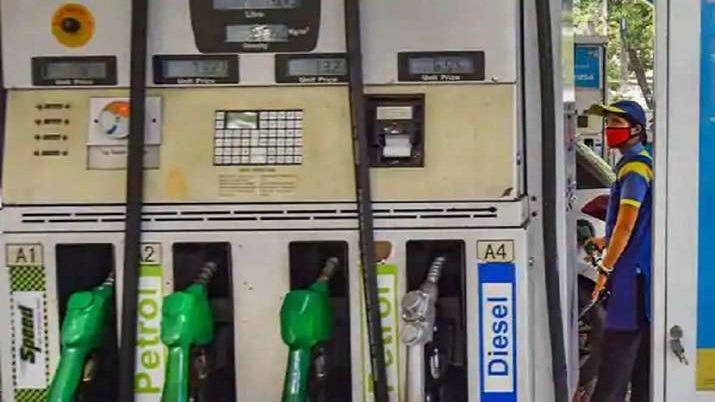
The collection from the increase in excise duty is much more than the amount paid to the oil companies.
Finance Minister Nirmala Sitharaman on Monday ruled out cutting excise duty on petrol and diesel to bring down prices that have touched an all-time high, saying that in lieu of the previous subsidized fuel pos limits. Payment.
Petrol and diesel as well as cooking gas and kerosene were sold at subsidized rates during the previous Congress-led UPA government. Instead of paying subsidies to bring about parity between the artificially suppressed retail selling price and the cost, which had exceeded US$100 a barrel due to international rates, the then government gave state-fuel retailers a total of Rs. Issued oil bonds worth Rs 1.34 lakh crore. These oil bonds and the interest thereon are currently being paid.
“Had I not been burdened with filling oil bonds, I would have been in a position to reduce excise duty on fuel,” she told reporters here.
“The previous government has made our job difficult by issuing oil bonds. Even if I want to do something, I am paying for oil bonds with my nose.”
Seeking to raise excise duty on petrol and diesel to boost revenue collection last year, Sitharaman said the interest on oil bonds paid in the last seven years totaled Rs 70,195.72 crore.
He said that out of Rs 1.34 lakh crore worth of oil bonds, only Rs 3,500 crore of principal has been paid and the remaining Rs 1.3 lakh crore is to be paid between the current fiscal and 2025-26.
The government has to repay Rs 10,000 crore in this financial year (2021-22). 31,150 crore in 2023-24, Rs 52,860.17 crore next year and Rs 36,913 crore in 2025-26.
“A significant amount is going towards interest payment and principal repayment. What an undue burden on me,” she said.
“The opening balance in 2014-15 was around Rs 1.34 lakh crore and the interest repayment was Rs 10,255 crore. Since 2015-16, the interest burden is Rs 9,989 crore every year.”
The collection from the increase in excise duty is much more than the amount paid to the oil companies.
Excise duty on petrol was raised to Rs 32.9 per liter from Rs 19.98 a liter last year to take the gains arising out of international oil prices to a multi-year low as pandemic demand. was for
Minister of State for Petroleum and Natural Gas Rameshwar Teli told Parliament last month that the central government’s tax collection on petrol and diesel increased by 88 per cent to Rs 3.35 lakh crore as on March 31 from Rs 1.78 lakh crore a year ago. Excise duty collection in pre-pandemic 2018-19 was Rs 2.13 lakh crore.
The increase in taxes last year resulted in no revision in retail prices as they were adjusted against the shortfall required by the fall in international oil prices.
But with a return to demand, international oil prices have soared, leading to record high petrol and diesel prices across the country.
Petrol in more than half the country is above Rs 100 a liter and diesel is above that level in Rajasthan, Madhya Pradesh and Odisha.
Sitharaman said that the Center has kept the option of including petroleum products under the Goods and Services Tax (GST) regime open. “Whenever the states agree on it, it can be brought under GST.”
Inclusion under GST would mean subsuming excise duty and VAT (levied by the states) into one tax. This will help in curbing the cascading effect of tax-on-tax (VAT being levied on excise duty).
Read also | WPI inflation eases to 11.16% in July; Food, crude oil prices soften
Read also | FM Sitharaman says technical glitches in IT portal will be fixed soon
.